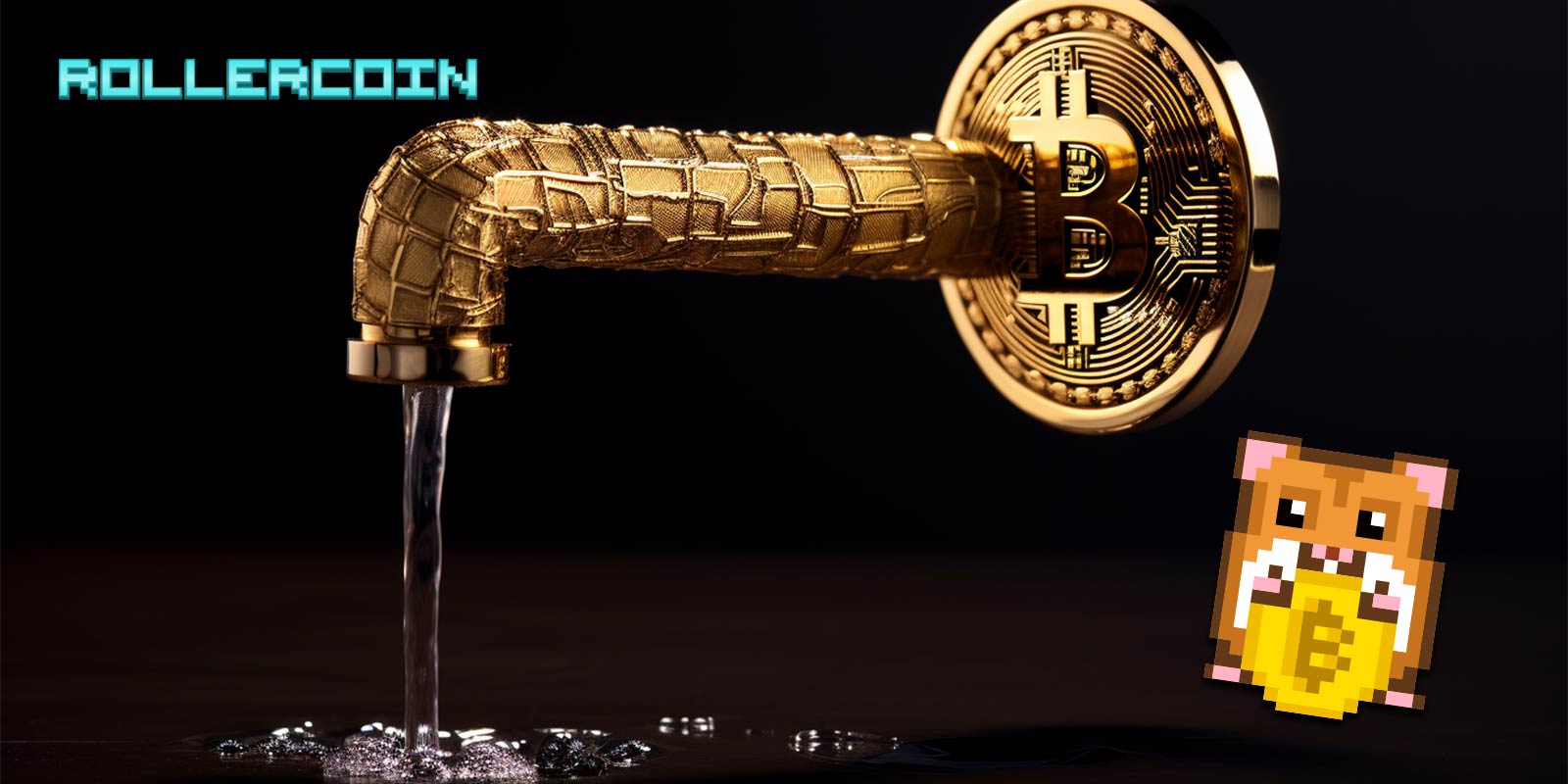Understanding how to sell your Bitcoins successfully is vital as the cryptocurrency industry develops and becomes more well-known. Knowing how to sell Bitcoin and mine free BTC is a crucial skill to have, whether you want to cash out on your investment or utilize your cryptocurrency for commerce. Thankfully, there are a number of ways to sell Bitcoins, from exchange services to peer-to-peer networks.
Some users also experiment with Bitcoin faucets to earn small BTC portions while learning the basics of crypto usage.
We’ll go through each of these approaches in-depth in this extensive tutorial and arm you with the knowledge you need to choose the best way to sell your Bitcoins. Thus, whether you’re a beginner or an experienced investor, read on to find out how to sell Bitcoins quickly and confidently.
How Can I Sell Bitcoin Into Cash?
Are you currently holding Bitcoins and looking to sell crypto for cash? If so, you might be considering the best approach to cash in on your cryptocurrencies. Fortunately, there are several options for selling Bitcoins for cash, and each has its pros and cons. In this comprehensive guide, we’ll discuss some of the most popular methods to sell your Bitcoins, including Bitcoin ATMs, peer-to-peer networks, and online exchanges.
First, let’s discuss Bitcoin ATMs. These specialized devices are available in numerous locations worldwide and offer a quick and convenient way to convert your digital currency into actual cash. To sell your Bitcoins using an ATM, you simply need to find a nearby Bitcoin ATM, select the “Sell Bitcoin” option, scan the QR code of your Bitcoin wallet, input the desired selling amount, and withdraw the cash from the machine. Remember that different ATM providers may have varying fees and limitations, so conducting your homework in advance is crucial when selling crypto.
Another way to exchange Bitcoins for cash is through in-person transactions. With peer-to-peer networks like LocalBitcoins, internet forums, and social media groups, you can connect with potential buyers. This approach, while offering greater flexibility and possibly larger profit margins, entails more risk. When conducting in-person transactions, take the necessary security measures, such as meeting in a public place and using a secure wallet.
Lastly, selling your Bitcoins for cash on an online exchange can be a fast and secure process. Most exchanges allow you to trade Bitcoins for cash and deposit the funds directly into your account by connecting your bank or payment processor. However, the process could take some time, and exchange fees might be higher than those offered by other methods.
If you’re into gaming, some platforms even let you play to earn Bitcoin rewards instead of just selling it — a fun way to stay in the ecosystem.
In conclusion, there are several strategies for selling Bitcoins for cash, each with its own advantages and disadvantages. To ensure a seamless and safe transaction, whether you decide to use a Bitcoin ATM, peer-to-peer network, or online exchange, it’s crucial to conduct thorough research and choose a trusted provider. By following these tips and considering the question, “How do you sell Bitcoin?” or “Can I sell Bitcoins for cash?” you can confidently and easily sell your crypto for cash.
How Can I Sell Bitcoin Peer-to-peer?
Ready to cash out because you’re tired of holding onto your Bitcoins? Peer-to-peer platforms like LocalBitcoins and Paxful can be excellent options for selling your Bitcoins while enjoying more flexibility and potentially making more money. Plus, negotiating online with strangers is always an exciting experience.
LocalBitcoins, a well-known platform, provides a marketplace where buyers and sellers can interact both online and offline. In our opinion, meeting a complete stranger at a coffee shop to sell my Bitcoins for cash feels like a modern-day treasure hunt. Just sign up, verify your identity, and list your Bitcoins for sale. Then, sit back and wait for potential buyers to reach out to you to discuss terms and complete the transaction. Remember to follow the platform’s guidelines to ensure a safe and successful transaction.
If you’re looking for more options, Paxful is another popular peer-to-peer network for selling Bitcoins. You can create an offer on Paxful by specifying your preferred payment method, desired rate, and currency. Afterward, engage with potential buyers and use the platform’s escrow service to finalize the deal. It’s like having a virtual garage sale, only you’re selling digital cash instead of haggling over used clothes and trinkets!
Peer-to-peer Bitcoin sales can be fun and thrilling. Moreover, it’s an excellent opportunity to meet new people with similar Bitcoin interests.
For those who want to earn BTC while gaming, check out Bitcoin games — a lighthearted alternative to selling.
To ensure a safe and secure transaction, though, it’s crucial to exercise caution and do your homework, just as with any financial transaction. So whether you decide to use Paxful, LocalBitcoins, or any other peer-to-peer platform for selling Bitcoins for cash, remember that there are plenty of options for where to sell and buy Bitcoin.
How Can I Sell Bitcoin Using an Exchange Service?
You may easily and securely convert your digital assets into cash or other cryptocurrencies by selling Bitcoins via an exchange provider. There are two different kinds of exchanges: centralized and decentralized.
Coinbase, Kraken, and Binance are a few examples of centralized exchanges that offer a user-friendly platform for selling Bitcoins. Create an account, go through the identification verification procedure, and put your Bitcoins into your exchange wallet if you want to sell them on a centralized exchange. Place a sell order after that for the specified quantity and price. You can withdraw the money from your order once it has been fulfilled and deposit it into a bank account or another cryptocurrency wallet. Similar to selling your stock portfolio, except with Bitcoins in place of equities.
Decentralized exchanges (DEXs), such as Uniswap and Sushiswap, facilitate peer-to-peer transactions by operating without a central authority. As most DEXs operate on the Ethereum network, you’ll need to convert your Bitcoins into a token that can be sold on a DEX, such as Wrapped Bitcoin (WBTC). If you want to have more privacy and control over your transactions, this procedure could appear a little more difficult to understand, but it’s still something to consider. Use a cryptocurrency wallet that is compatible with the DEX, like MetaMask, in order to sell your Bitcoins there. Next, use a site like CoinList or KyberSwap to convert your Bitcoin into a DEX-acceptable token. Then, add WBTC to your wallet, link your wallet to the DEX, and submit a sell order for the asset you want to sell.
If you’re seeking a safe and practical way to cash out, selling Bitcoins utilizing an exchange service might be a terrific choice. To guarantee a seamless and successful transaction, you should pick a reliable exchange and adhere to its rules. There are several solutions available to fit your preferences, whether you like a centralized or decentralized exchange.
And if you’re not ready to sell, you can always mine Bitcoin for free to gradually build up your balance.
What Are the Fees for Selling Bitcoin?
Although it can appear easy to sell your Bitcoins, you should be aware of the varying costs associated with each method. The costs you might anticipate when selling your Bitcoins are listed below.
Bitcoin ATMs are a practical way to exchange your Bitcoins for cash; however, they sometimes have higher transaction costs than other methods. Fees range from 3% to 10% per transaction and depend on the service provider. Hence, it’s crucial to consider the percentage you’ll lose in fees if you want to sell a significant number of Bitcoins.
Selling your Bitcoins on peer-to-peer websites like LocalBitcoins and Paxful gives you greater flexibility. In comparison to other possibilities, these sites only charge merchants a 1% fee. Nevertheless, individual payment methods or currencies could incur extra costs; thus, it’s crucial to carefully investigate the costs related to each platform and payment method.
A user-friendly environment for selling your BTC is provided by centralized exchanges like Coinbase and Binance. Fees normally range from 0.1% to 0.25% for each transaction and are based on the exchange and your trading volume. These charges might seem small, but if you trade frequently, they can mount up quickly.
A more safe way to sell your Bitcoins is through decentralized exchanges like Uniswap and Sushiswap. The platform charge and network transaction expenses are included in the fees; the platform fee is subject to change based on the DEX and market circumstances. Gas prices might vary and can be rather expensive when there is a lot of market activity, so it’s crucial to keep that in mind.
In conclusion, while choosing the best way to sell your Bitcoins, it’s critical to take the costs connected with each option into account. Make sure to conduct your homework and comprehend the fees and any other charges related to each choice before deciding whether to use a Bitcoin ATM, peer-to-peer platform, centralized exchange, or decentralized exchange. You can make sure the transaction goes smoothly and successfully by doing this.
Why Do I Need to Verify My Identity to Sell Bitcoin?
If you plan to sell your Bitcoins, you might be wondering why you must verify your identity. The selling process requires identity verification, particularly when using centralized exchanges or peer-to-peer networks. The main reasons for identity verification are as follows.
Exchanges and platforms require identity verification for several reasons, but regulatory compliance is a key one. Most countries have anti-money laundering (AML) and know your customer (KYC) regulations, and compliance helps prevent illegal activities, such as money laundering, terrorist financing, and tax evasion. Identity verification ensures that you are conducting business in a secure environment when selling Bitcoins for cash.
Another reason identity verification is essential is for security purposes. By confirming your identity, you are protecting both yourself and other users against fraud and theft. It helps prevent unauthorized access and hacking attempts by ensuring that only authorized users can access the platform and make transactions when selling crypto.
The third main factor that makes identity verification important is trust. Verified accounts exhibit a higher degree of reliability and security, making them more likely to attract potential customers. When you sell Bitcoins on a platform, ensure you’re working with legitimate buyers and sellers. Identity verification improves user trust and makes the environment safer for transactions when you’re wondering, “Who buys Bitcoins?”
Usually, you’ll need to provide a selfie, a government-issued ID, and proof of address to verify your identification. Depending on the platform and your place of residence, the specific requirements may vary. Although the verification process may seem like a hassle, it is necessary for security, regulatory compliance, and trust-building reasons.
Conclusion
Selling your Bitcoin can be an exciting experience, but navigating the various selling methods can be challenging. Four popular ways to sell Bitcoin have been discussed in this article, each with its pros and cons. We’ve also talked about each option’s costs and prerequisites for identity verification.
Bitcoin, invented in 2009 by an unidentified individual or group using the alias “Satoshi Nakamoto,” is a decentralized digital currency that regulates the generation of new units and employs encryption to protect transactions. Unlike traditional currencies, Bitcoin is not regulated by any central authority, making it a unique and often controversial asset.
As Bitcoin’s popularity has grown, so have the options for selling it. There are several effective methods to sell Bitcoin, including ATMs, peer-to-peer networks, centralized exchanges, and decentralized exchanges. Since each method has its own pros and cons, it’s crucial to select the one that best suits your needs.
Bitcoin ATMs offer a quick and easy way to exchange Bitcoin for cash, though fees can be high and location availability may vary based on your area. Peer-to-peer platforms like LocalBitcoins and Paxful provide more freedom, but it’s essential to consider any additional costs associated with specific payment methods or currencies. Centralized exchanges, such as Coinbase and Binance, offer a user-friendly environment for buying and trading Bitcoin, but they also require identity verification to meet legal requirements. Decentralized exchanges like Uniswap and Sushiswap provide a more secure and decentralized option, though costs may vary based on the DEX and market conditions.
The ideal choice for selling Bitcoin depends on your unique needs and circumstances. If you need cash urgently and don’t mind paying higher fees, a Bitcoin ATM may be the best option. If you want more control over the selling process and are willing to put in the effort to find a buyer, peer-to-peer networks might be ideal. If you’re looking for a user-friendly and secure platform, centralized exchanges are a great choice. If you value security and decentralization, a decentralized exchange might be the best option for you.
Selling your Bitcoin can be a straightforward and secure process when you choose the right platform and method. It’s crucial to conduct research and consider costs, identity verification requirements, and other factors when determining which option to choose. By being aware of the pros and cons of each method, you can ensure a smooth transaction when selling your digital assets. Whether you opt for a Bitcoin ATM, a peer-to-peer network, a centralized exchange, or a decentralized exchange, taking the necessary steps and doing your due diligence will help you successfully sell your Bitcoins for cash, making the process of selling crypto a positive experience.



